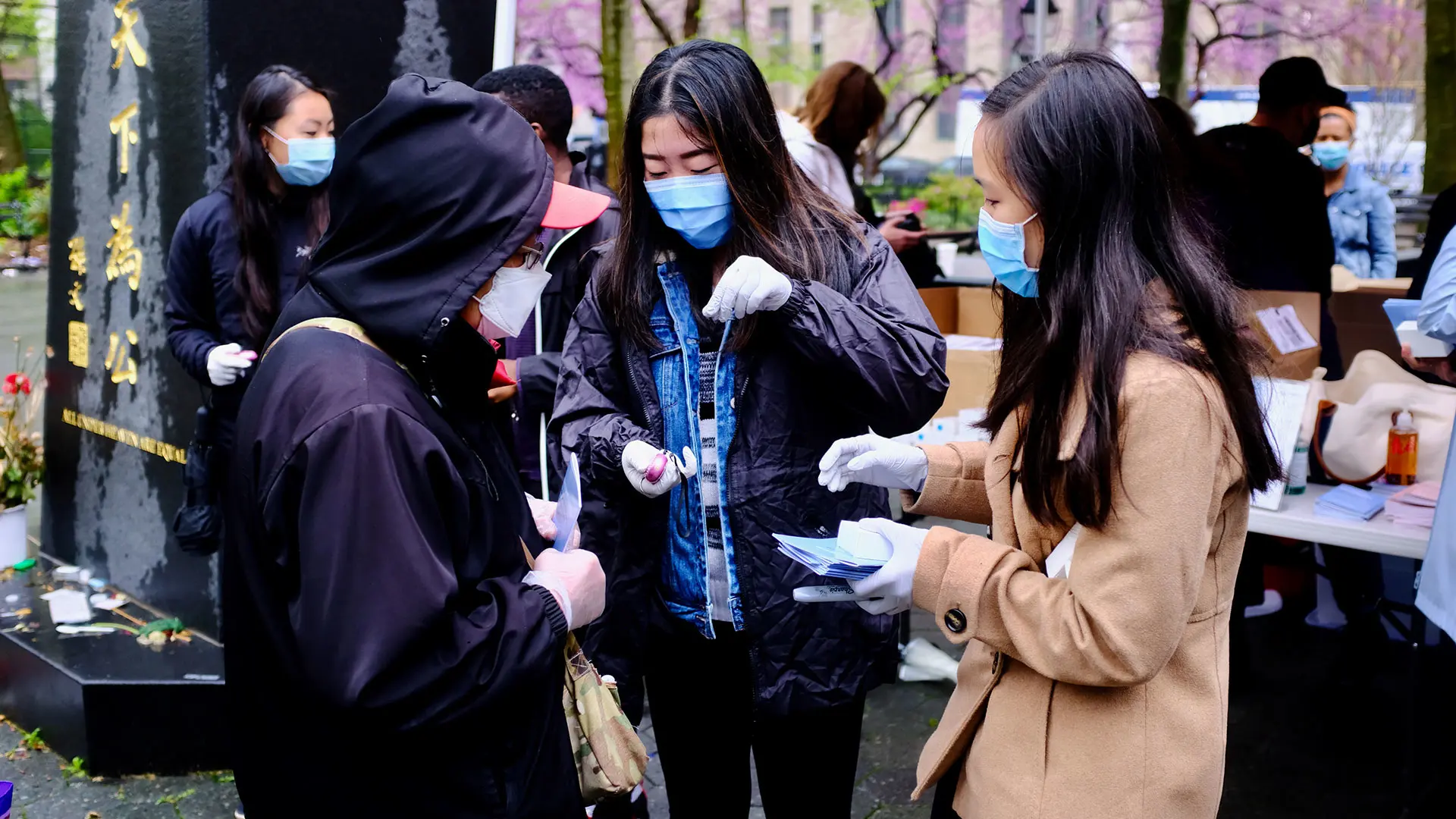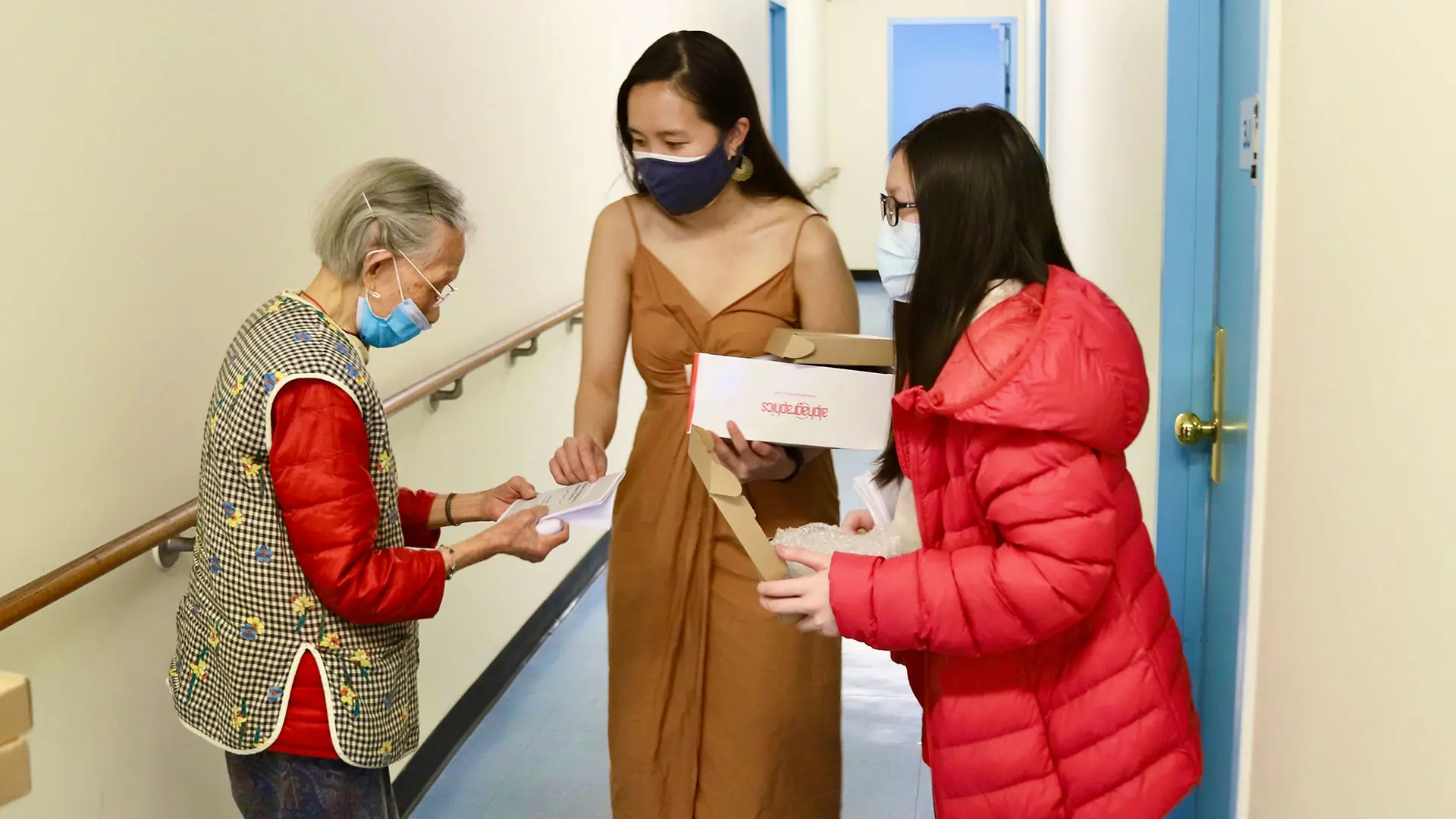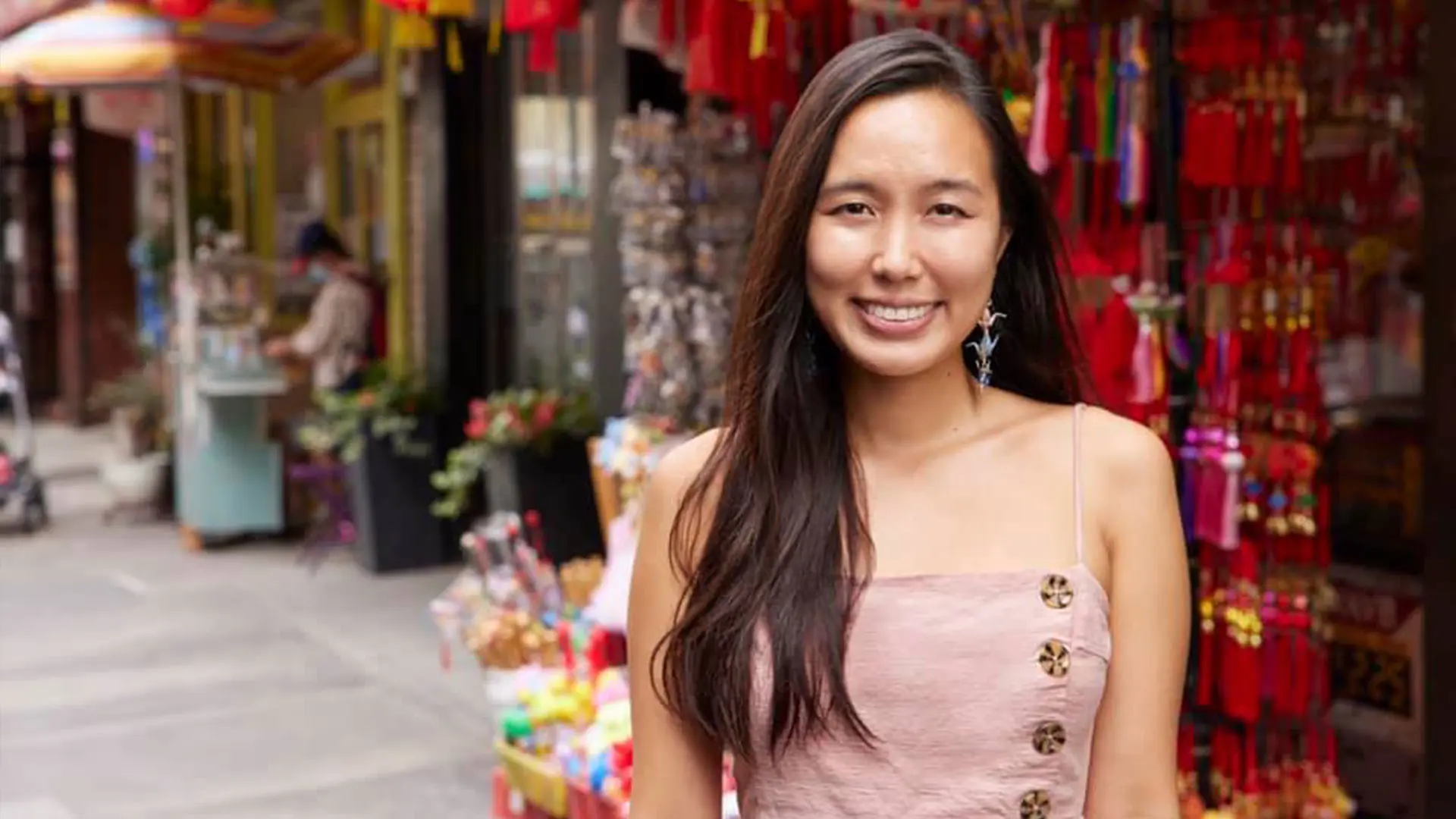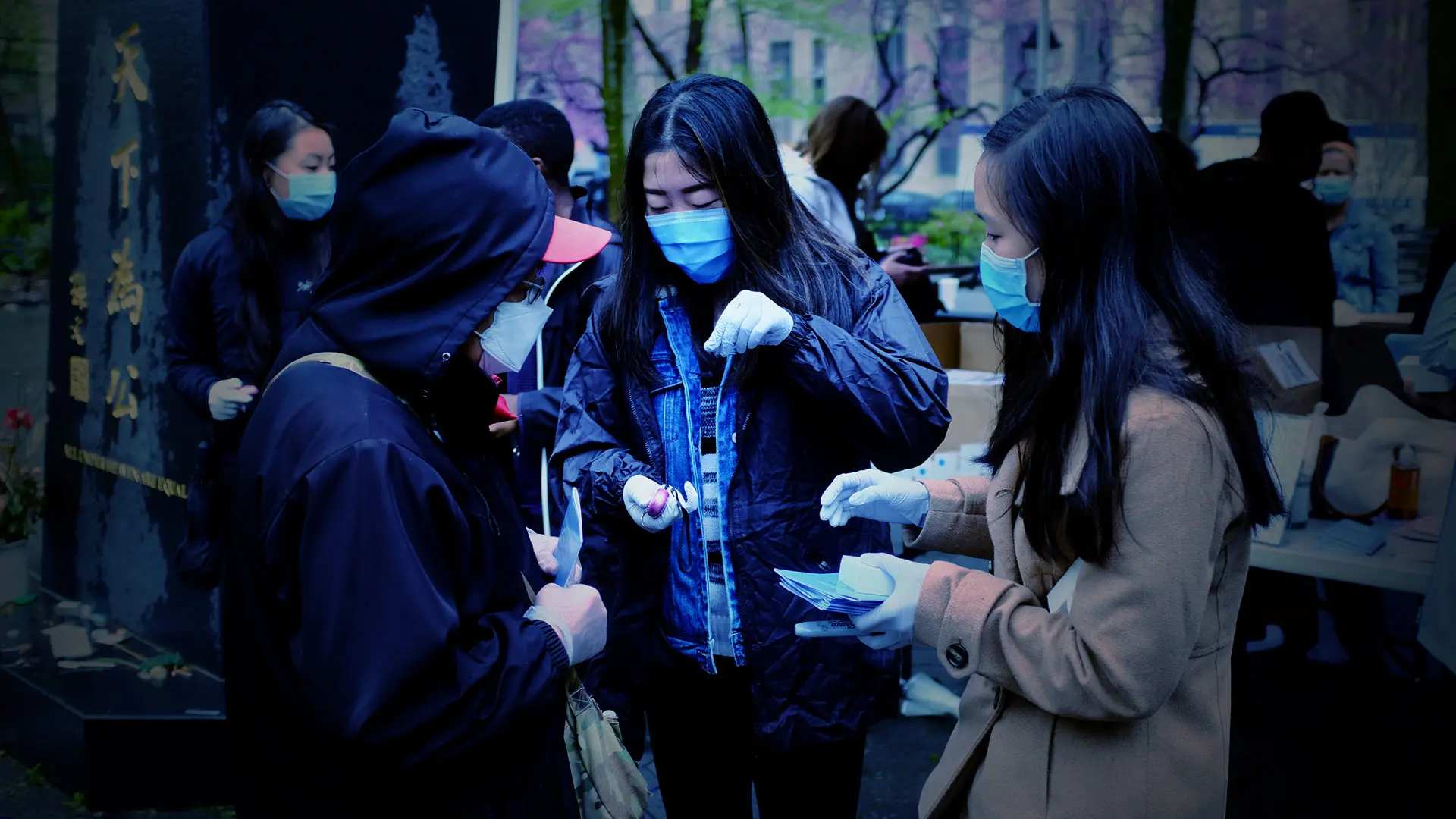The large turnout reflected the degree of fear among the AAPI community in the wake of increased anti-Asian racism and hate crimes during the COVID-19 pandemic. “We had barely advertised that event, but we handed out more than 1,000 personal safety alarms that day and booklets on how to prevent and report hate crimes,” recalls Ms. Tran. “When I walk around Chinatown today, I see people carrying those alarms, and I am happy that they are more able to protect themselves.”

Michelle Tran, right, with Alyce Kuo, now a fourth-year medical student, gave a personal safety alarm and a booklet about how to report a hate crime to an Asian elder in Manhattan's Chinatown in 2021.
The alarms are instantly recognizable because they bear the distinct logo of Soar Over Hate, a nonprofit that Ms. Tran co-founded in March 2021, as anti-Asian violence escalated, to support the community, especially those who are low-income, elderly, women, LGBTQ+, and essential workers.
Soar Over Hate has achieved much since then. By the fall of 2022, the organization has:
raised more than $250,000
distributed more than 32,000 alarms, whistles, and pepper spray devices, mainly in New York City and San Francisco, including 2,500 devices to Mount Sinai staff and students through a collaboration with Mount Sinai’s Committee against Anti-Asian Bias and Racism (CAABR) and the Security Office
assembled a leadership team of 15 members and a database of 500 volunteers, and
distributed $14,500 in college scholarships to New York City high school students, based on need and the essays they had written on community involvement.

Michelle Tran and a high school volunteer distribute a personal safety alarm and a booklet about how to report a hate crime to an elderly resident in Manhattan's Chinatown in 2021.
Additionally, the organization has held three free AAPI Care Fairs with Mount Sinai volunteers who offered hepatitis B education and testing, hypertension screening, voter registration, and COVID-19 vaccine sign-ups. It has coordinated several free female-taught, in-person self-defense classes for AAPI women and LGBTQ+ people. Through a program known as Heal From Hate, it is also enhancing access to mental wellness support, connecting victims of anti-Asian hate with therapists and culturally competent therapy, and offering group therapy healing sessions with licensed mental health professionals.
Such efforts have earned Ms. Tran several honors, including a 2021 L’Oréal Paris Women of Worth “fearless change maker” recognition, a CNN Hero Salute, and coverage of her and Soar Over Hate in numerous local, national, and international news outlets.
Ms. Tran plans to continue expanding Soar Over Hate and its efforts to address anti-Asian racism nationally. “Hate crimes have caused a lot of anxiety and mental trauma in the community in the last two years,” she says. “My hope is that the hate will die down and that people can feel safe walking outdoors in their own skin. We want to make Soar Over Hate sustainable so that we can continue delivering our programs and helping more people.”

Michelle Tran in Manhattan's Chinatown.
Ms. Tran is a fifth-year dual degree MD/PhD candidate at the Graduate School of Biomedical Sciences and anticipates graduating from the program in 2025-2026. She is completing her PhD research in the lab of Nina Bhardwaj, MD, PhD, Ward Coleman Chair in Cancer Research, Director of Immunotherapy, and Co-Director of Cancer Immunology at Icahn Mount Sinai, who serves as her Principal Investigator. She recently was granted an F30 Predoctoral MD/PhD fellowship award from the National Cancer Institute at the National Institutes of Health for her research on bladder cancer.
“I am investigating myeloid-cell mediated resistance to immune checkpoint blockade (ICB) therapy in bladder cancer,” Ms. Tran says. “The goal of my work is to identify why some bladder cancer patients do not respond to ICB treatment and to identify predictive biomarkers and combinatorial drug strategies to overcome resistance in these non-responders.”
Adds Ms. Tran: “My PhD work is challenging, but I feel excited by the rapidly progressing field of cancer immunology and I am motivated by the bladder cancer patients and their families I've been honored to meet at Mount Sinai. I also feel lucky to train with an incredible team of mentors in immunology, cancer biology, genitourinary medical oncology, and urologic surgical oncology.”
